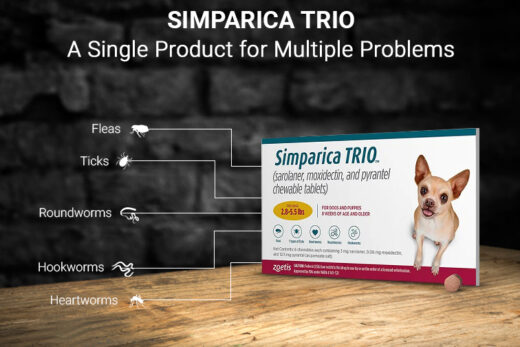When your dog is in pain all you want to do is help them as fast as you can. Nerve pain and seizures in your best friend can break your heart when you don’t know what to do.
But you can ease the suffering if you know what your dog needs to stay happy and healthy. Vets have all sorts of solutions for different illnesses, and a common treatment for seizures and pain in dogs is Gabapentin.
When your vet prescribes Gabapentin, it can be overwhelming and confusing if they don’t have time to fully explain the drug. In this article, we will break down every question you could have, and explore whether the use of Gabapentin is the right choice for dogs’ experience with chronic pain.
What Is Gabapentin?
Gabapentin is a drug used to treat seizures, chronic pain, and nerve pain. Often given to humans with these symptoms, vets have recently begun prescribing it for dogs in distress as well. Although, you should know that Gabapentin is not FDA approved in dogs and is given “off-label.”
Gabapentin is also used to treat neuropathic pain, which is when usually non-painful stimulation causes discomfort. This medication can even help dogs suffering from epilepsy.
Gabapentin does not just block the pain receptors in the brain but fully relaxes the whole nervous system to stimulate deeper healing. This can make Gabapentin for dogs is a good choice for pain management when you need long-term care.
Is Gabapentin Safe For Dogs?
Like most medications, the use of Gabapentin for dogs is safe when you are closely monitoring the dosage and strength as prescribed by your vet. In general, this drug is considered safe for dogs and a good way to treat serious issues.
It is important to treat the right conditions with the right medication. If your dog has been diagnosed with depression or insomnia, make sure your vet knows this, as Gabapentin could be too strong when combined with medications for these conditions.
Never give human-grade Gabapentin to a dog as it contains Xylitol, which is toxic to dogs. Even small amounts of Xylitol can be extremely harmful, possibly leading to death. If you run out of your vet-prescribed medicine early, do not supplement it with anything but what your vet has approved.
The bottom line is that you always need to consult your vet and place your dog on a plan that is tailored to their specific needs.





